Visiting Japan has been the best travel decision we made to date. With all the weird quirks, the latest crazes, and its uniqueness, Japan quickly became our favorite country in the world. There are a few things you need to know before visiting Japan, but the most important thing to remember is that you are going to have an incredible time in the country. You will love every moment of your holiday.
When I first arrived in Tokyo, I had no idea how to eat sushi correctly, why people bow, and how to greet or thank in Japanese. I didn’t understand why people take their shoes off or that it’s perfectly safe to carry large amounts of yen in my wallet, whilst getting lost in the darkest streets of Tokyo. Japan surprised us in the most incredible way possible. It’s a safe country, friendly and welcoming towards tourists, with lots of things to do for every type of traveler.
So here are the 20 things nobody tells you about visiting Japan.
Table of Contents
- Japan is silent
- There are vending machines everywhere
- You need a manual to use the toilets
- Size matters in Japan
- Weird hotels in Tokyo
- The Japanese are super proud
- World’s best service
- Japan is super safe
- Person or chimney?
- Take your shoes off
- Japanese people don’t speak English (much)
- They are dead on time
- Hello, beautiful!
- No rule benders
- No tipping
- Disposable houses
- No cards please, we’re Japanese
- Manners matter
- Religion is different
- Japan is not that expensive
- Japan has four Seasons
- Final Thoughts
- Frequently Asked Questions
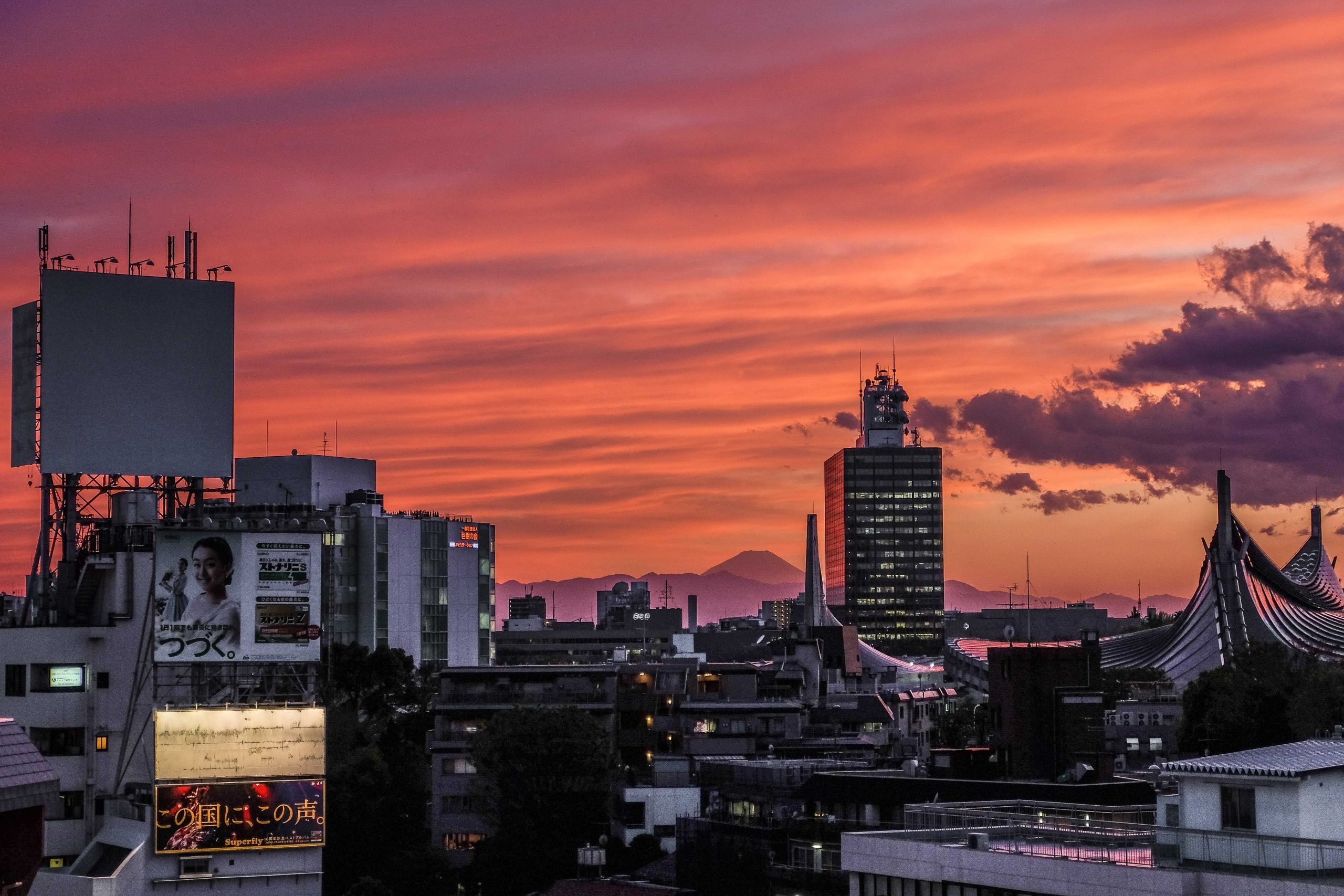
Japan is silent
I know, I know, you can’t believe one of the world’s most densely populated cities can actually be silent. Well, apart from certain districts such as Shibuya or Shinjuku, the streets of Tokyo are rather quiet. Nobody speaks loudly, nobody screams, there is no chattering in the background. Walking around downtown Tokyo at night (e.g. Chiyoda) is like enjoying a quiet Sunday afternoon in a park.
Make sure you respect the quiet in Japan and speak softly also. It’s really beautiful to walk around at night in the center and enjoy the mega-metropolis being super silent. It has a profound effect on any visitor. You’ll love it.
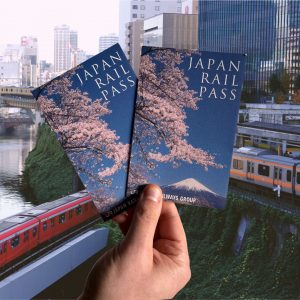
Japan Rail Pass
The optimal way to explore Japan is with a rail pass that is available for durations of 7, 14, or 21 days, offering unlimited travel across the country. Shinkansen included!
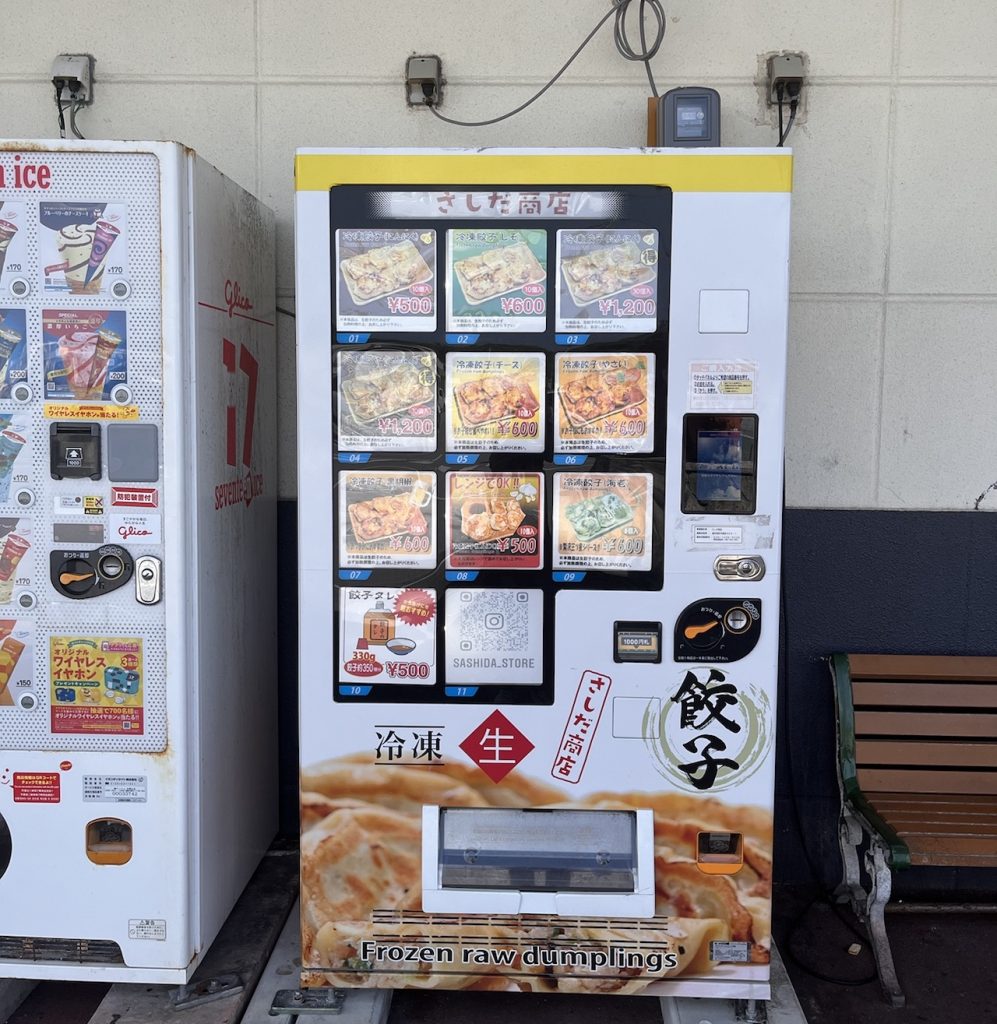
There are vending machines everywhere
Oh no, you forgot to buy milk, noodles, smokes, bananas? Worry not, there are vending machines EVERYWHERE in Japan. You can buy anything ranging from hot or cold drinks to umbrellas and warm meals.
There are over 5 million vending machines nationwide in Japan. There is 1 vending machine for every 23 people. Because Japan has one of the lowest levels of crimes in the world, decreasing every year, it’s possible to leave all the vending machines on the side roads without the threat of them being vandalized.
Get a hot tea, a morning coffee and a snack at one of the vending machines around Japan.
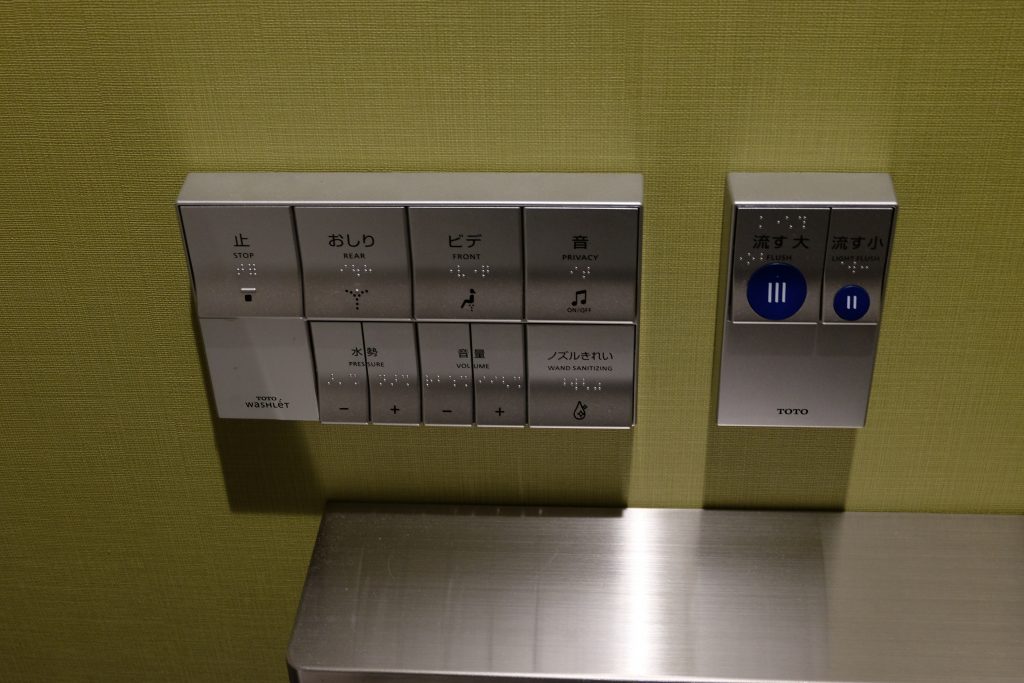
You need a manual to use the toilets
There is a singing button, a seat warming button, a button which shows a person sitting on top of a small spring, a person sitting on top of a waterfall … there is a plus button, a minus button. Ergh, I guess just try and get to know your toilet before using it.
Jokes aside, Japanese toilets are renowned for being the absolute best in the world. They self-clean and most of them act as bidets also. Besides, no more cold toilet seats in the winter. Japan thought about the user experience and made toilets into an experience.
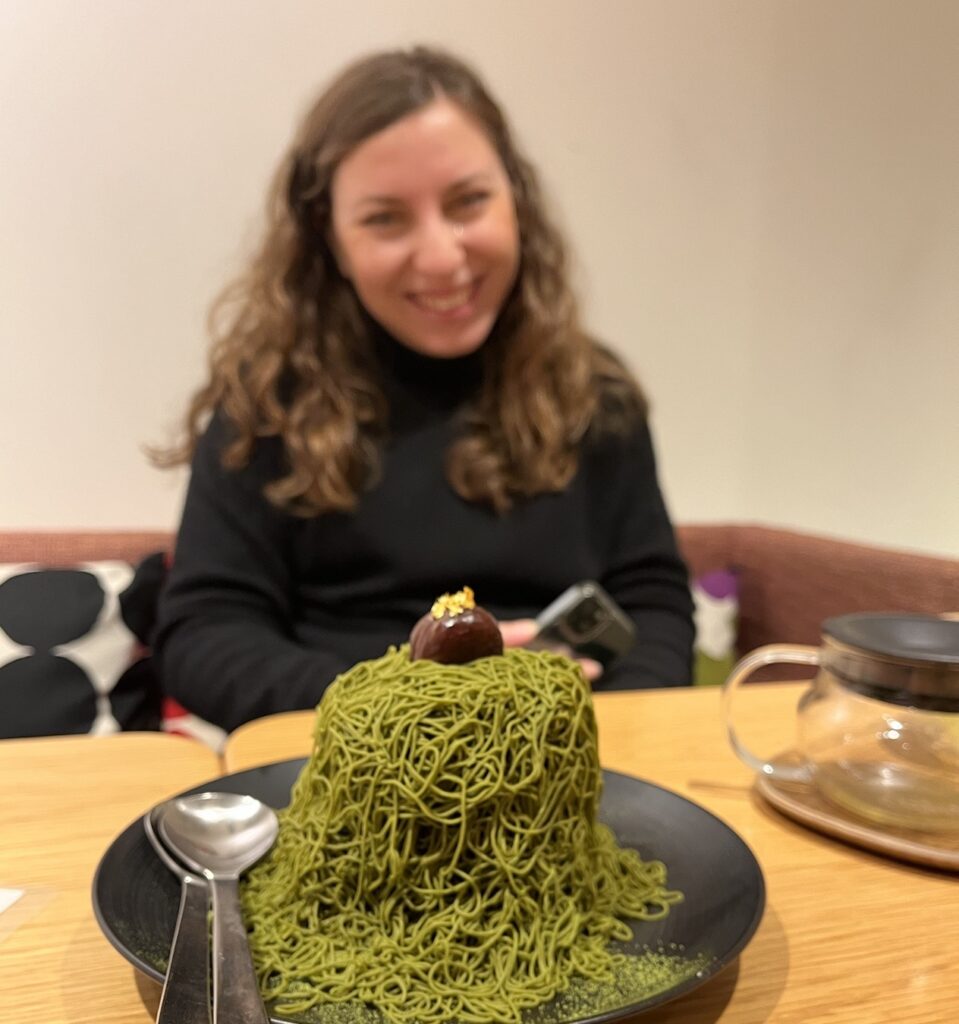
Size matters in Japan
Everyone eats. Everyone eats all the time. Yet everyone is skinny and petite. Chances are if you are anything over (UK) size 6-8 you are probably considered fat in Japan.
But don’t worry, as I mentioned, the Japanese are friendly towards tourists and visitors. You won’t have any issues in Japan and nobody is going to make fun of you during your holiday. You will be able to find some larger size clothes if shopping is your jam.
Being skinny is important in Japanese culture, for sure. But when you visit, you don’t need to worry about things like this, In fact, many people come back from Japan saying they had the best time in the world. So just get ready to have a good time.
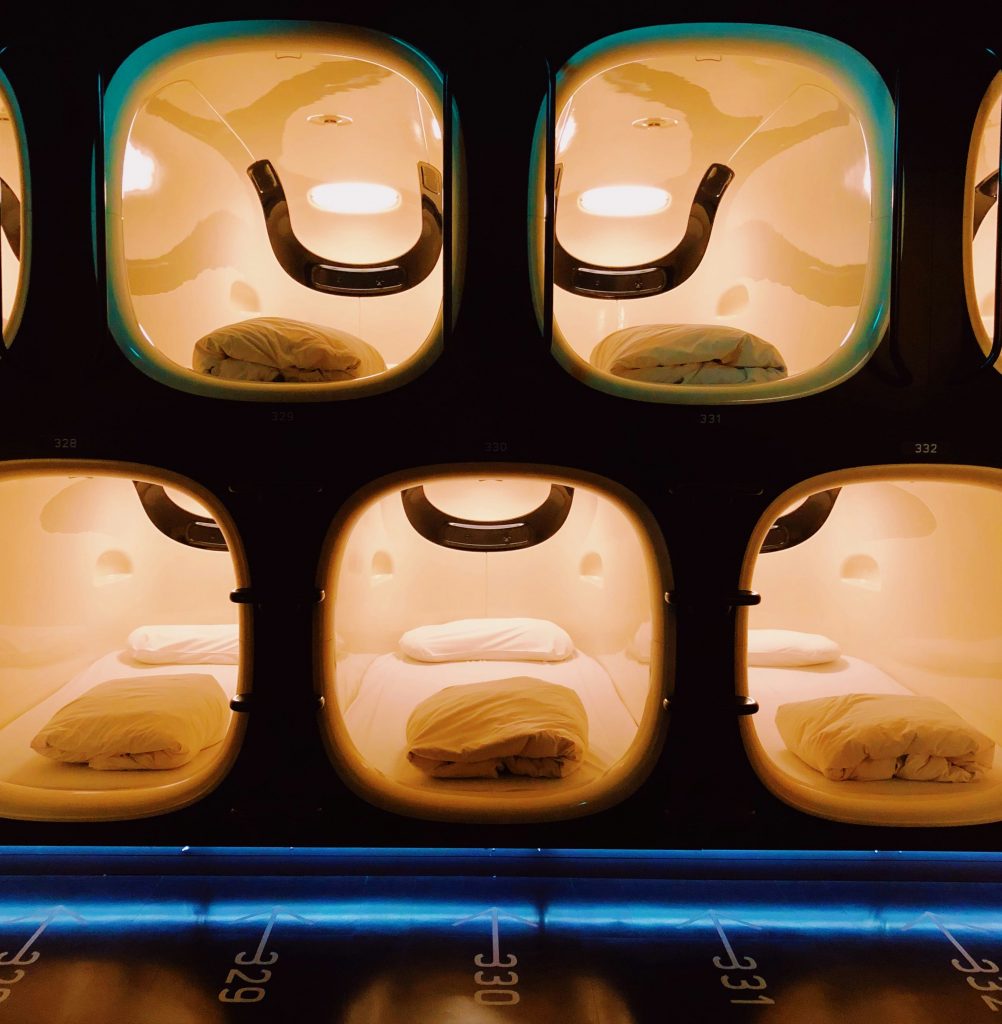
Weird hotels in Tokyo
You can find many different types of accommodation in Tokyo, but it is safe to say that you will also find the weirdest ones here. If you don’t like pleasantries and talking to people, pick the fully automated Henn na Hotel close to Ginza. If you are after a quick nap, check out the many capsule hotels. Love manga? Find one of the Manga Cafés and settle in for a good read.
There are also Love Hotels in Shinjuku, tailored for more of an adult Tokyo time. However, many people use them when they also want privacy and to get away from the crowds. These hotels are themed and highly private as well.
Henn na Hotel is an automated ‘robot’ hotel in Tokyo’s upmarket shopping district, Ginza. The check-in/check-out is done via self-service kiosks, and some of the daily tasks are done by robots. Fortunately, you can still contact a human if you have any issues.Conveniently located just a minute’s walk from Shintomicho Station, Henn na Hotel Tokyo Ginza boasts air-conditioned rooms with free WiFi throughout the property. Tokyo Station is 13 minutes away by train from this hotel. The rooms are equipped with a flat-screen TV, an electric kettle and a refrigerator. All rooms are fitted with a private bathroom.
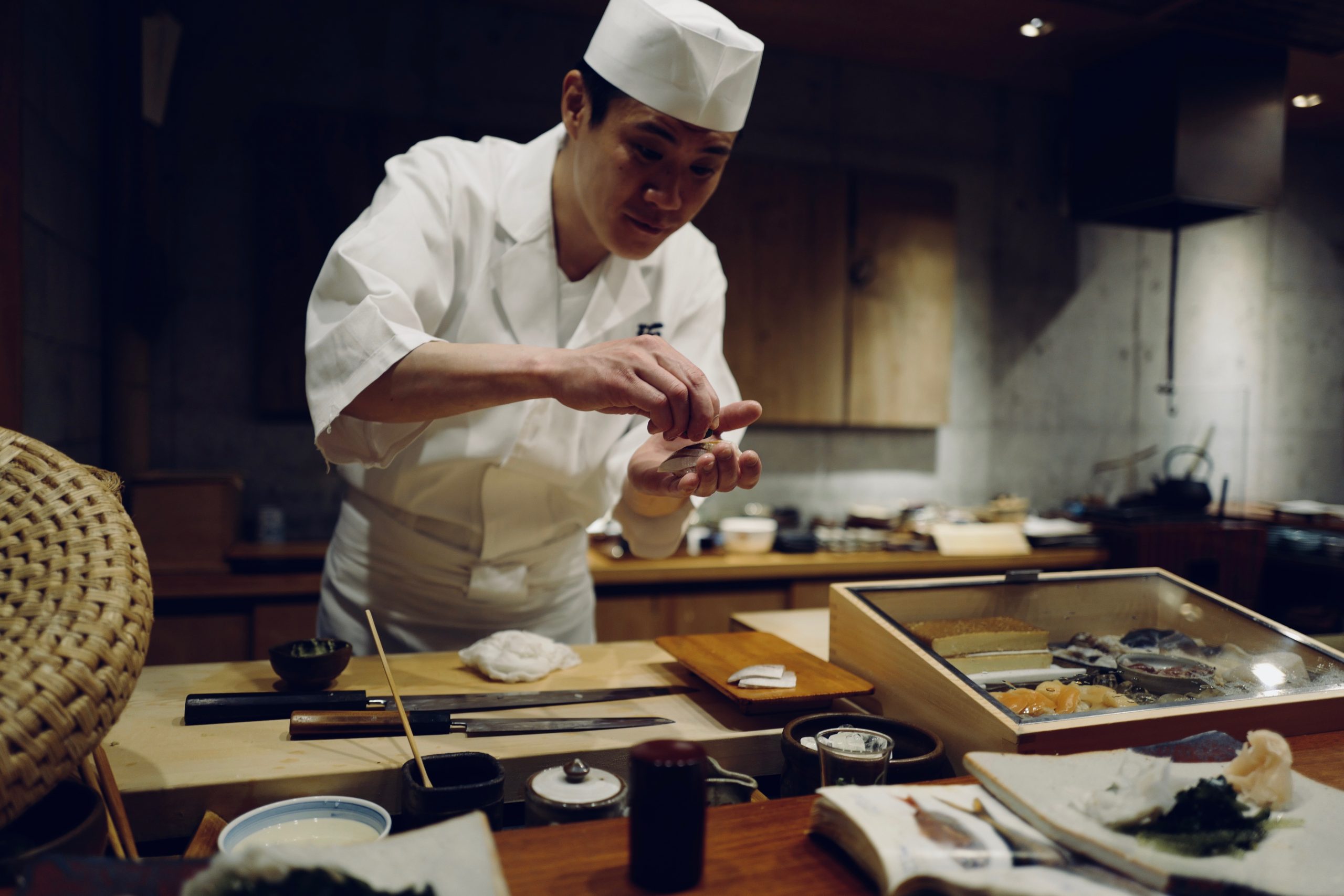
The Japanese are super proud
It doesn’t matter if a Japanese person works in a corporate environment, Michelin restaurant or serves you at the local shop, everyone is super proud of their work. They do things well, never cut any corners and take their job seriously.
Japan excels in customer service. In fact, there’s no other country that does customer service better than Japan. Not even England. Everyone in Japan treats customers with the utmost respect. This is something I really appreciated about my time in Japan. I felt valued as a tourist who wants to spend money to support the economy.
Tip: visit a local artisan or craft shop and learn about the way Japanese people care about tradition.
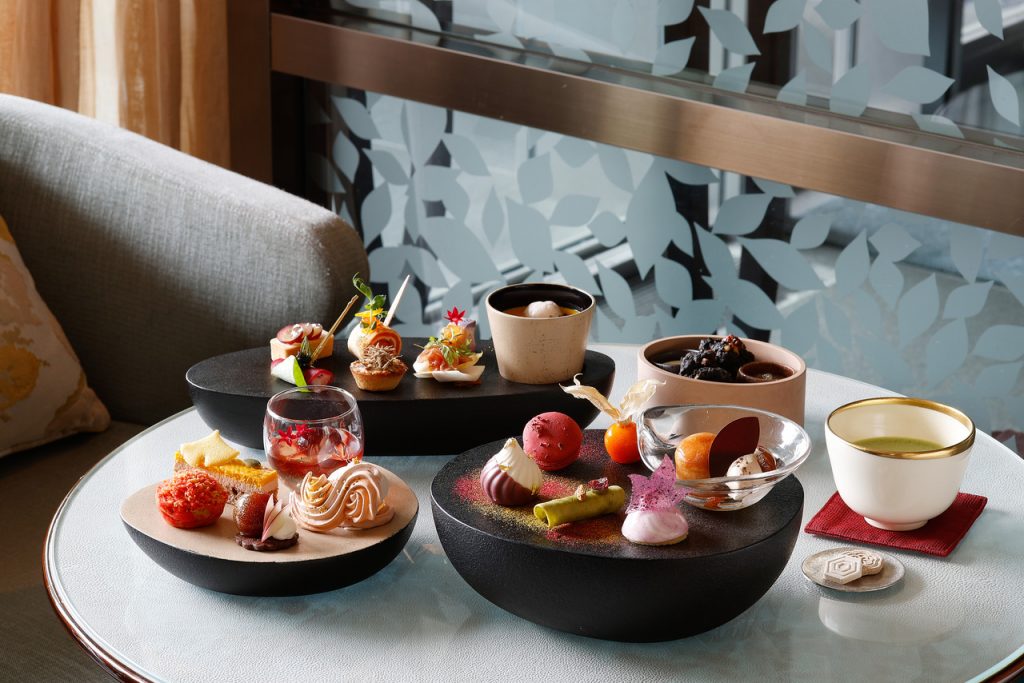
World’s best service
In line with the previous point, since everyone is super proud of their work, things are obviously done correctly, all the time, anytime. This, in turn, translates to Japan having the world’s best customer service. Forget the 5* hotel experience you have to pay serious cash for in a Western country. In Japan, you will feel like royalty just by ordering noddles from the tiny restaurant hidden in a dark street. Impressive, right?
This is something we valued while visiting Japan. No demand was too big or small. The staff smiled gently and tried their very best to accommodate us. Even the people in shops, supermarkets, department stores or train station were kind and service-oriented.
Visiting Japan is so worth it because you feel respected and valued as a tourist.
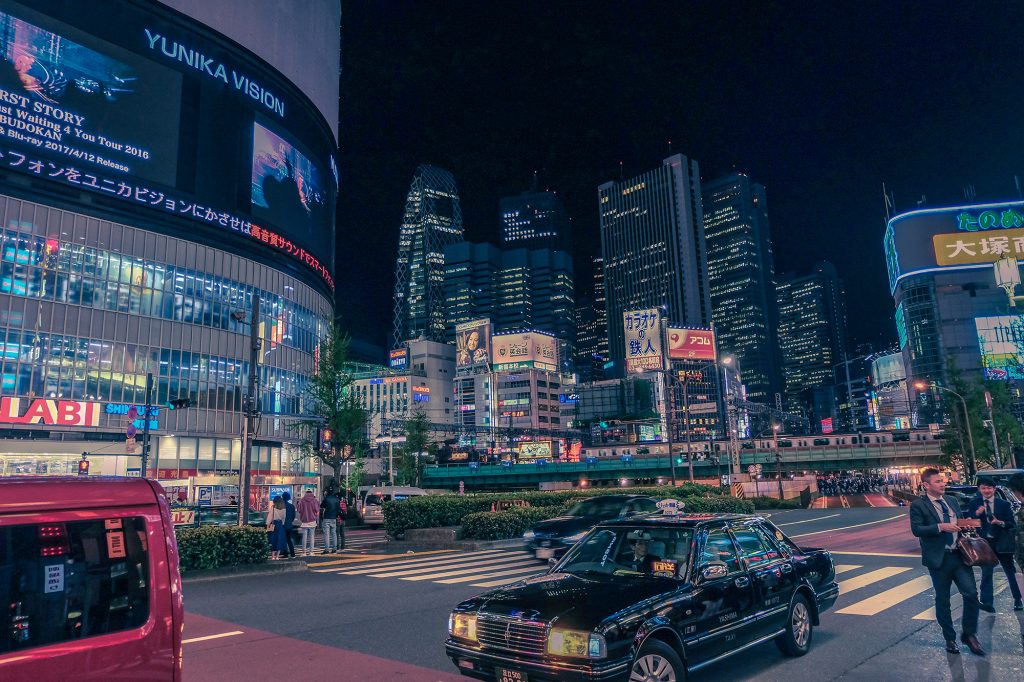
Japan is super safe
Japanese children go to school alone since they are 5 years old. Women have nothing to fear even when they walk in the darkest street in the middle of the night. Being among the countries with the lowest crime rate on the planet, Japan has maintained its reputation as being incredibly safe.
This is why we recommend Japan for solo travelers. It’s a country where you can walk around without fear. In fact, theft reports are very low in Japan. When you visit Japan, you will love seeing how locals leave so many belongings unaccompanied in public places, cafés, and bars.
For example, it’s common for people to leave their expensive laptops and phones on a table at the coffee shop while they go to the toilet. We were stunned by this fact, but also made us feel safe, in a normal, civilized society.
Person or chimney?
In Japan, there are still bars, restaurants, and establishments where people are allowed to smoke indoors. A Pachinko, for example, is a loud entrainment place where people play slot machines and smoke like chimneys.
But you need to look out for smoking areas in large cities. There are many public areas where people are not allowed to smoke. You can only do so in dedicated spaces.
We noticed that many Japanese people smoke. But it’s nice to know you can walk down the main boulevards without inhaling other people’s smoke because of the strict rules in Japan.
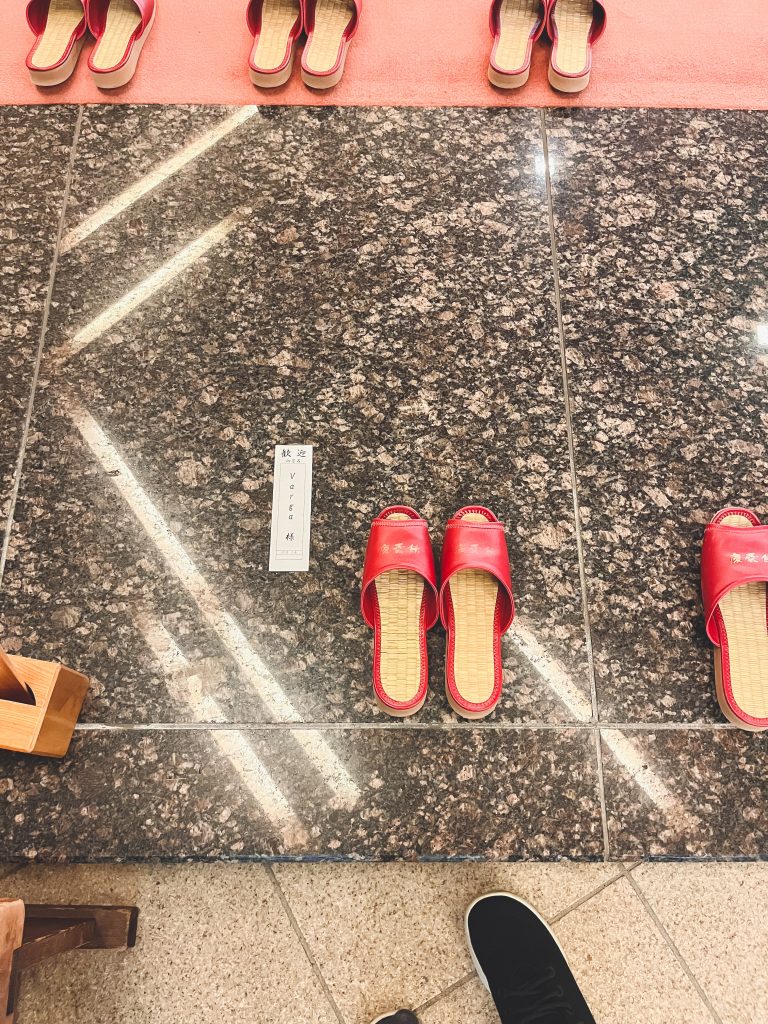
Take your shoes off
It can happen to you anywhere. At the restaurant, at the temple, when entering someone’s home. The Japanese are quite strict about their “taking the shoes off” rule, and you should absolutely respect this. Make sure your socks are always clean and spotless.
Another thing you need to remember is that you sometimes need to remove your shoes before entering a public toilet in a restaurant.
This may sound crazy, but toilet slippers are always provided for you. This is because Japanese people understand that the world is full of dirt and gems, so we shouldn’t bring them into the home.
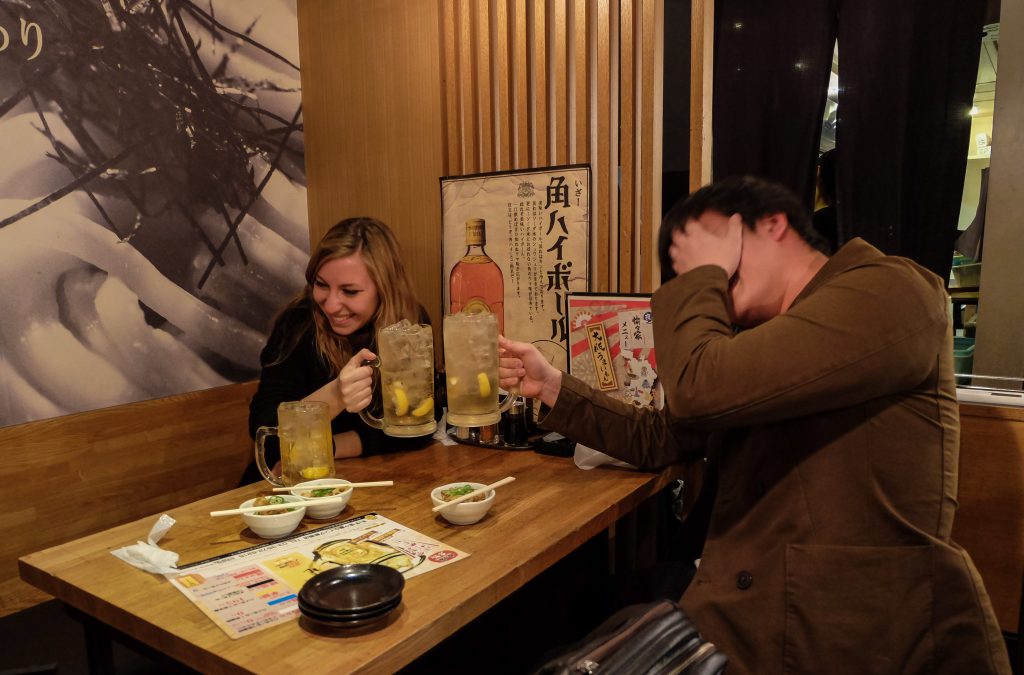
Japanese people don’t speak English (much)
I was surprised to see a few people who can speak English in Japan. For such an internet-oriented nation, I expected that most will have no issues communicating in English. In reality, I heavily relied on gesticulating and pointing at things. Learn a few basic phrases before visiting Japan.
Update: Preparing for the Olympics, Japan has been heavily investing in teaching English. As a result, people will more likely speak English in large and medium cities. The younger generations also speak better English. The majority of people do understand English, but are a bit shy speaking it.
But of course, since you are visiting Japan, you shouldn’t be upset if people can’t help you in English. Just be polite, thank them, and try asking another person.
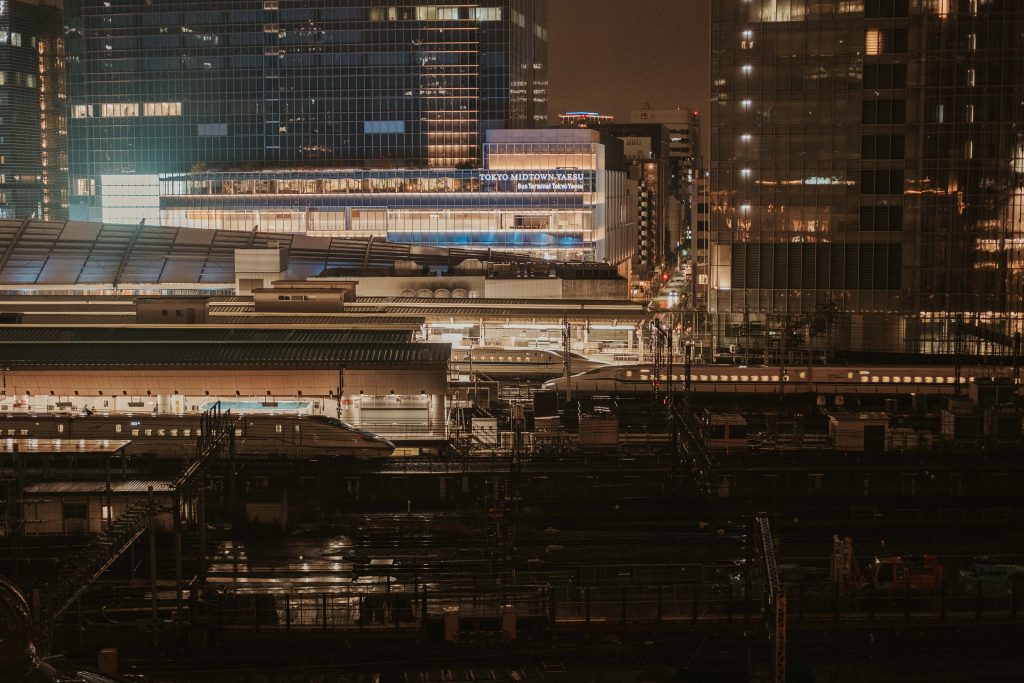
They are dead on time
Never, ever, ever be late when meeting with a Japanese person. Everything in Japan is dead on time: the trains, the buses, the people, the service. On rare occasions when the trains are late, the conductor offers an explanatory note to the passengers so they can use it at work/school. If you are invited to a party at 7 pm, be there at 7 pm sharp.
This idea helps Japanese people plan their route to work and school without ever being late. The infrastructure is sound in Japan and very reliable. This is something you will truly enjoy because you can preplan your trip down to the second!
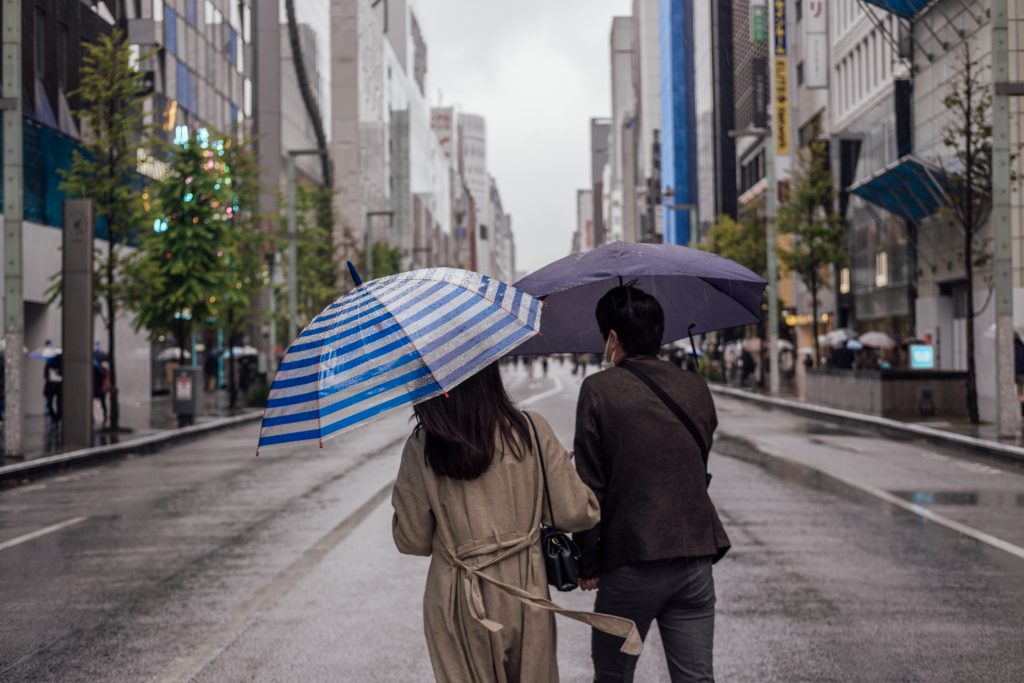
Hello, beautiful!
The Japanese look good even when they take the garbage out. Everyone wears good clothes, is dressed properly and nicely arranged. There are no people wearing baggy t-shirts, old trousers and dirty shoes. There is no such thing as overdressing in Japan.
You will see that people wear neutral colors, and the whole idea behind it is that you should blend in as much as possible. This is a Japanese mentality you should respect when visiting Japan.
A lot of people worry about visiting Japan with tattoos. You don’t have to worry at all. Many people understand that in Western societies, tattoos are not related to the mafia but an act of art and self-expression. However, you might be denied entry to some onsens. This is not personal, but it’s only normal that the owners cannot start making exceptions for you, to locals with tattoo will then demand entry as well.
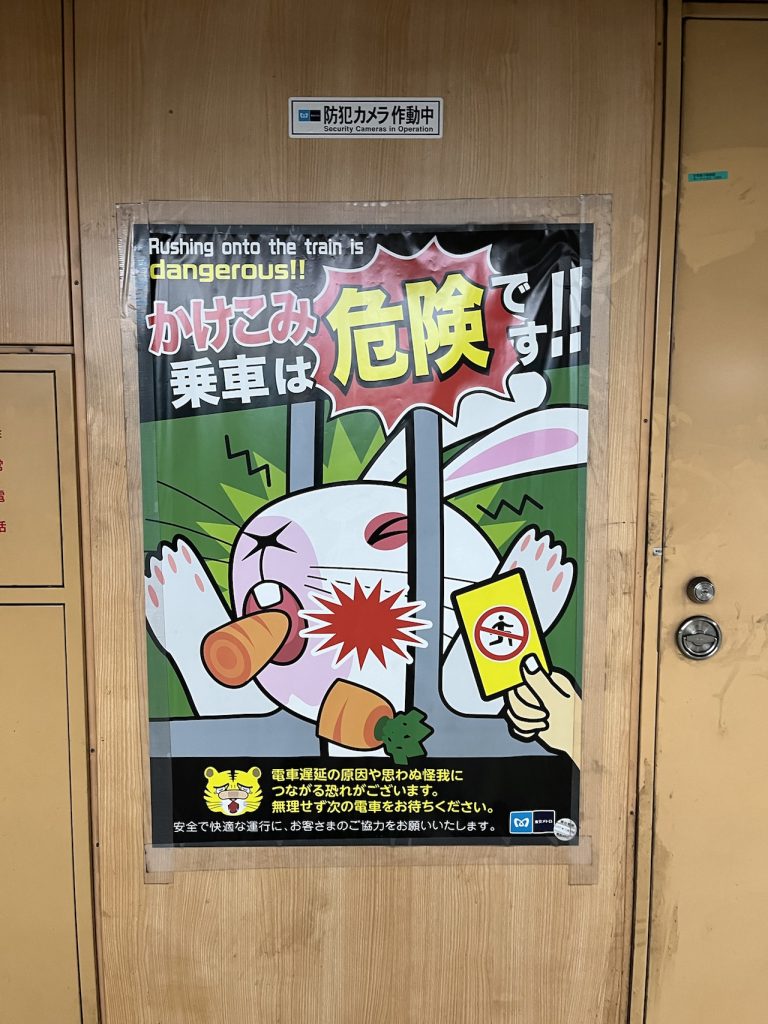
No rule benders
Is there a rule, a law, a sign? The Japanese take it seriously and respect it. It is because nobody bends the rules in Japan, that the society works so well, the crime rates are incredibly low and people respect each other.
So please take a moment to see the surrounding signs. Even if you don’t speak Japanese, all posters have obvious drawings so you can understand what not to do. Another important thing is to pay attention to the signs on the pavements and floors in Japan. They will have arrows on them, so you know which side of the road to stick to. Avoid getting into people’s way, or you might make them late for work.
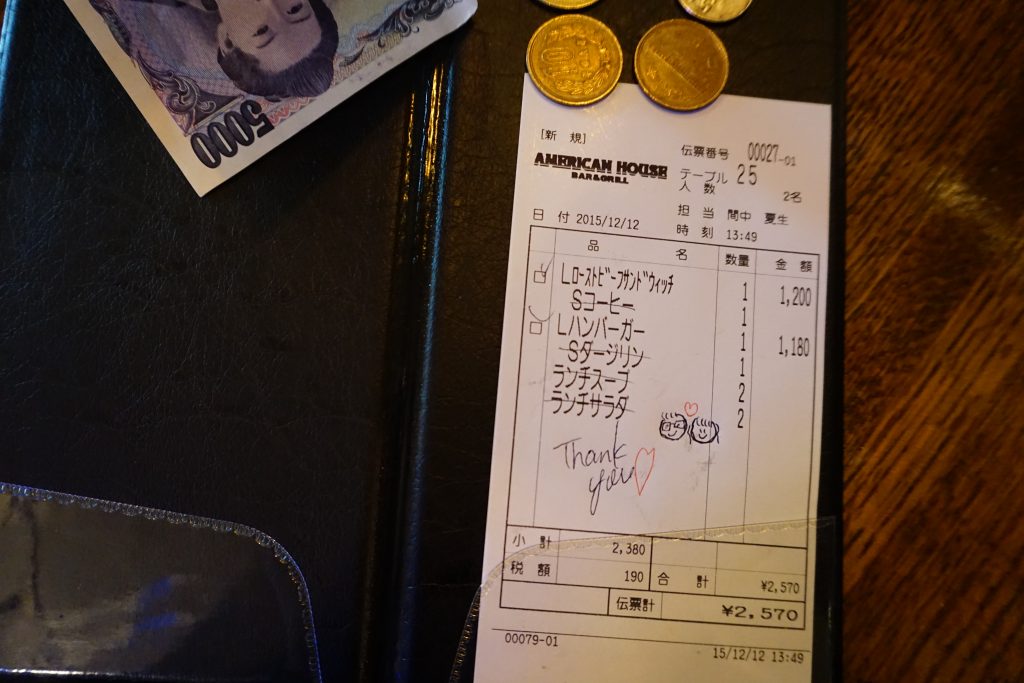
No tipping
Chances are, if you tip in Japan, someone is going to run after you to give you the money back. It’s not an insult to tip, but people are simply happy with their salaries and their work, hence they don’t believe tipping is necessary. Should you love the service, just buy the chef a shot of sake. Say Kanpai (the Japanese word for cheers) and leave it to that. It will be far more appreciated.
When it comes to Japanese food, there’s no other country I’d rather visit. You will thoroughly enjoy eating your way around Japan.
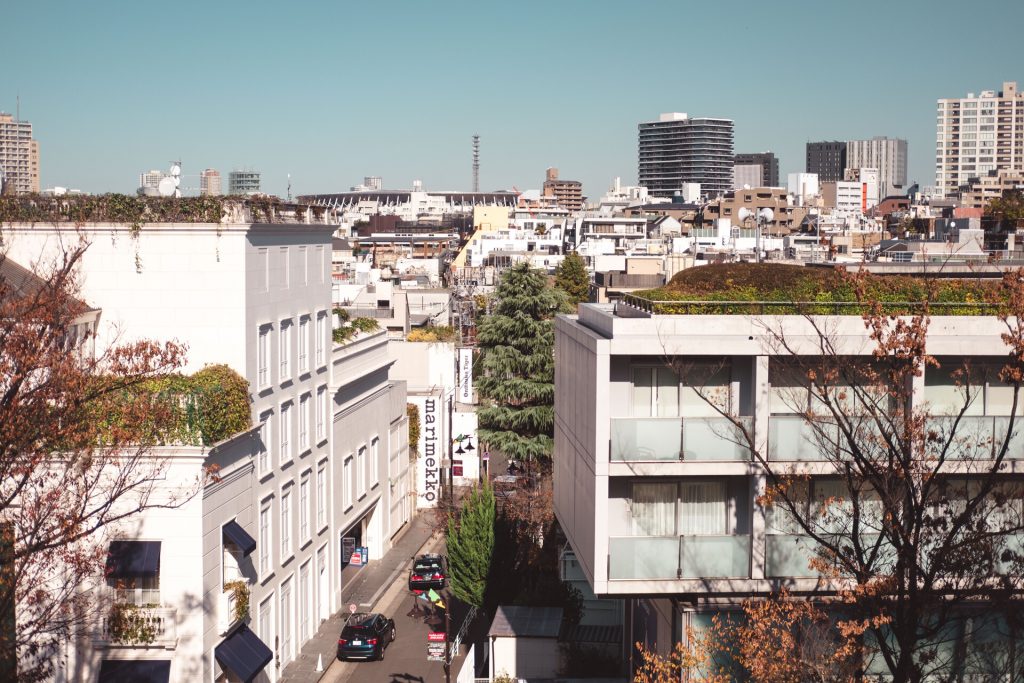
Disposable houses
All Japanese houses look rather good, and they seem to be preserved in great condition. This is because, in Japan, people demolish and rebuild their houses every 30 years or so. Of course, not all houses undergo these drastic changes.
In Japan, a new buyer will often bulldoze the home. This is because the land keeps its value, but the house doesn’t. Even though, houses in Japan are built to very high standards, especially in comparison to other Western countries. Physical homes in Japan become worthless within 15-30 years.
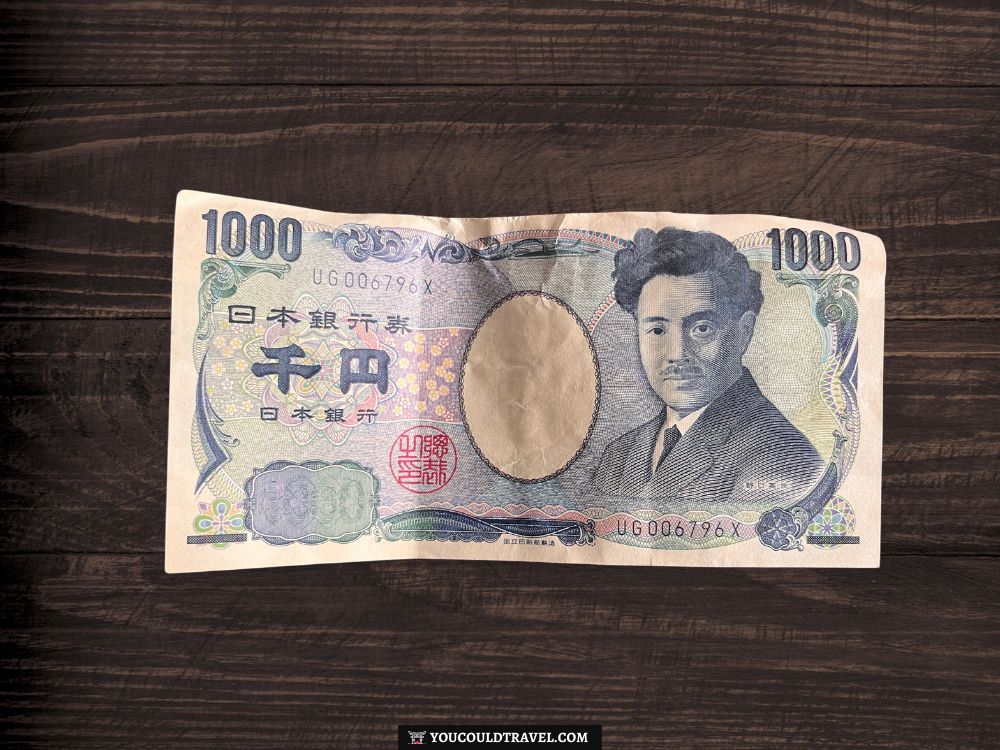
No cards please, we’re Japanese
For such a high-tech nation, Japan still uses the good old cash. From the economy’s perspective, using cash is obviously much better, but it’s also more inconvenient for the person carrying the money. However, since Japan is very safe, carrying lots of yen in your pocket is perfectly fine. When I tried to buy something of high value in Japan, I wanted to pay with my master card. It turns out, the merchant didn’t even know how to use the card machine and offered me a staggering 15% discount for the inconvenience if I paid with cash instead.
During our big move to Japan, we noticed that more and more businesses accepted our international cards. There are still smaller shops where we need to pay cash, but definitely a massive improvement since we first visited Japan. Just note that residents have their own local cards, which are accepted almost everywhere!
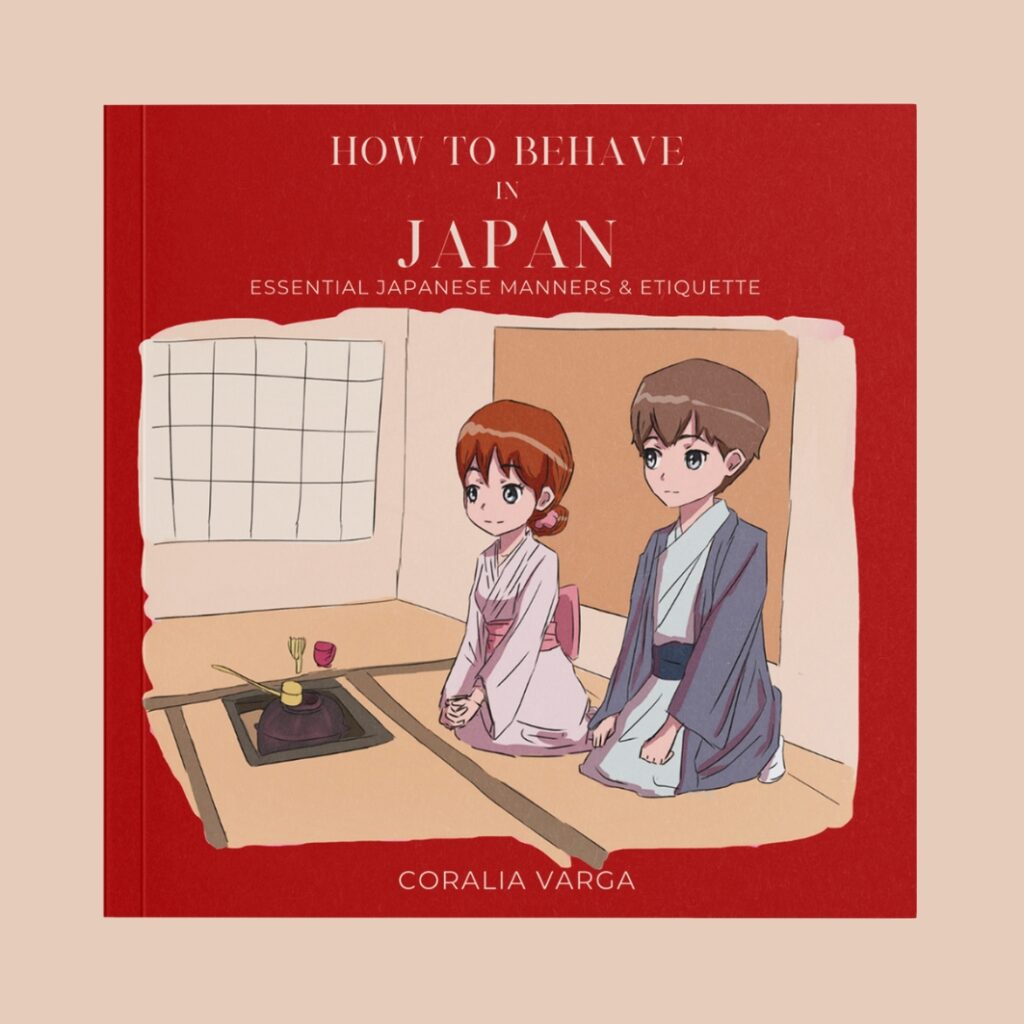
Manners matter
Of course, not being a rude person applies to all travelers in any country, but the Japanese are super tight about their customs. Sure, they will forgive you if you are a foreigner, but they will also much appreciate you if you put a little effort in. Learn the essential Japanese manner and etiquette before visiting Japan.
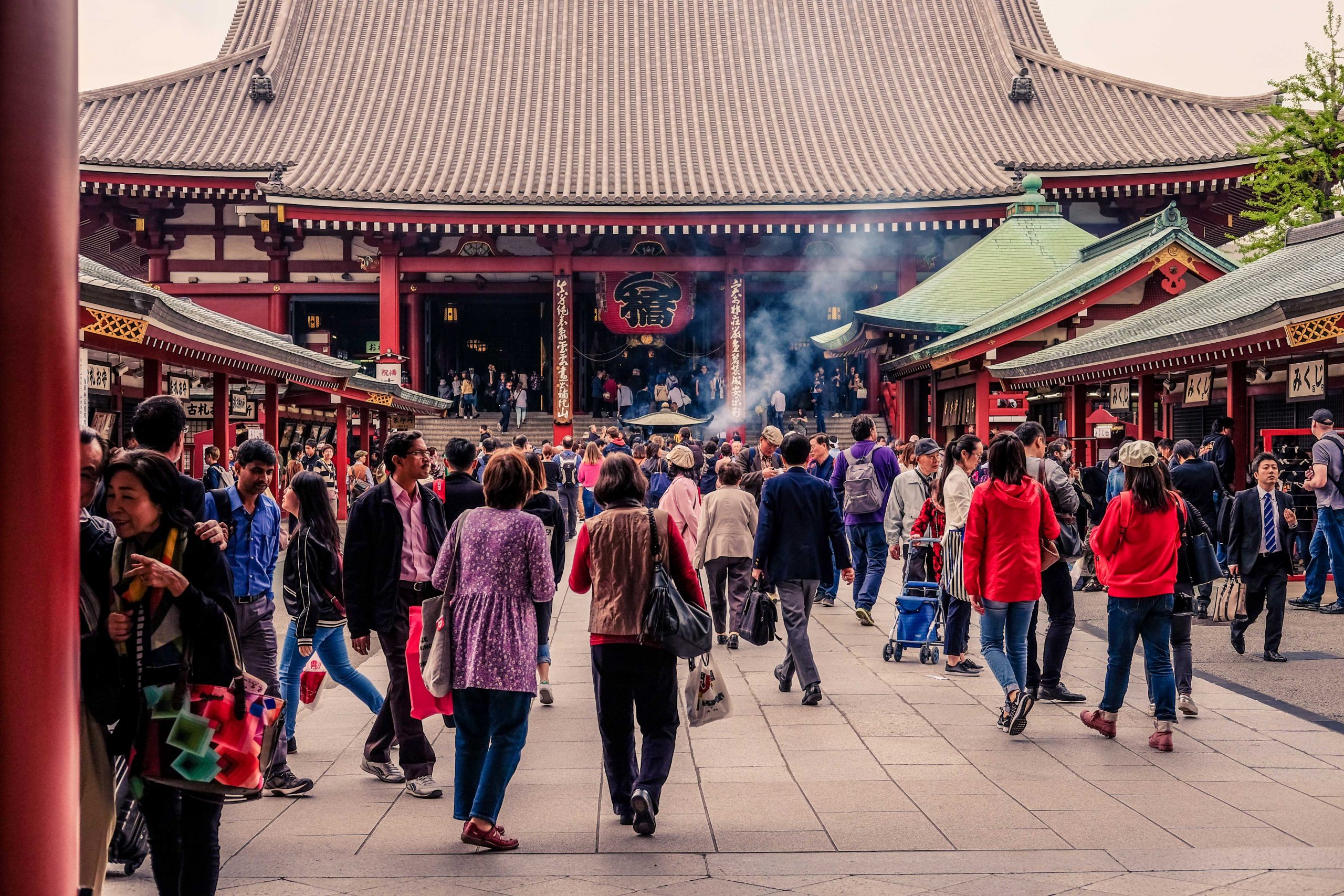
Religion is different
The Japanese are not religious, they are spiritual. No, it’s really not the same thing. Whilst highly peculiar about living in harmony with their nature, they don’t actually go to shrines or temples to pray but to pay their respects, which is a huge difference in Japan.
You can learn a bit more about Japan and religion here.
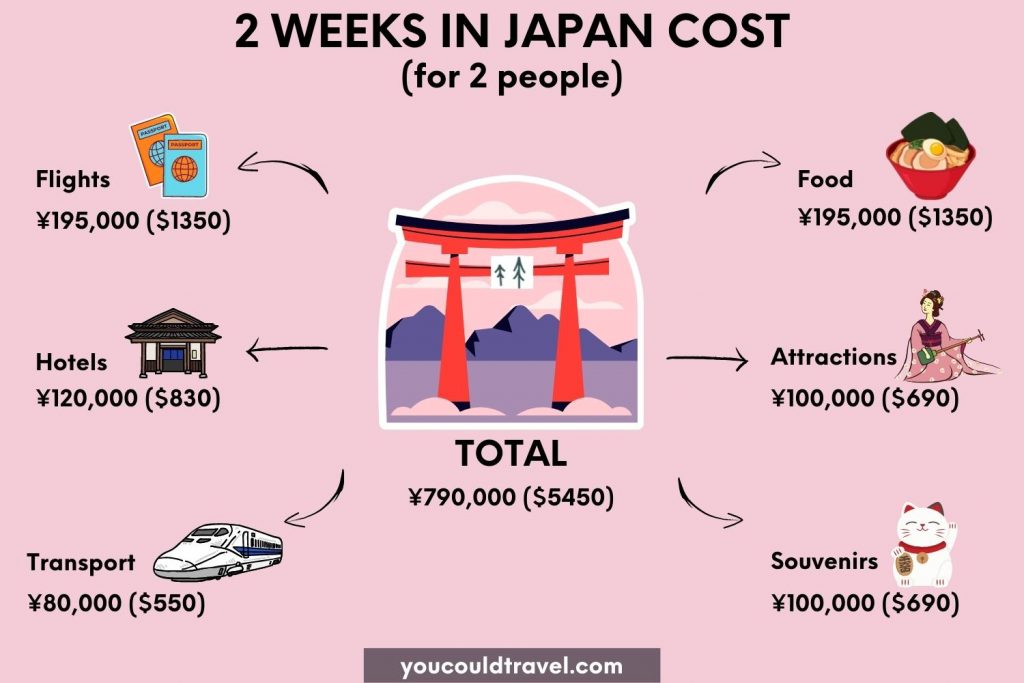
Japan is not that expensive
For so many years, tourists avoided visiting Japan because of the super expensive label. In reality, Japan is not that expensive, at least not when I’m comparing it to the living standards in the US, UK and Europe. You can eat a decent hot meal for as little as $5 if you know where to look. And not to mention that many entry fees to museums, galleries and temples is also around $3-5 per person. I will tell you, though, fruit is incredibly expensive in Japan. A small bag of satsumas is about $10 and strawberries go for around $20 in major supermarkets.
You can look at the cost to visit Japan and make some proper estimations. You can enjoy a trip to Japan on a budget for sure. Especially now that they have an array of accommodations that are suitable for a wide range of budgets and there are many free things to do in Tokyo alone.
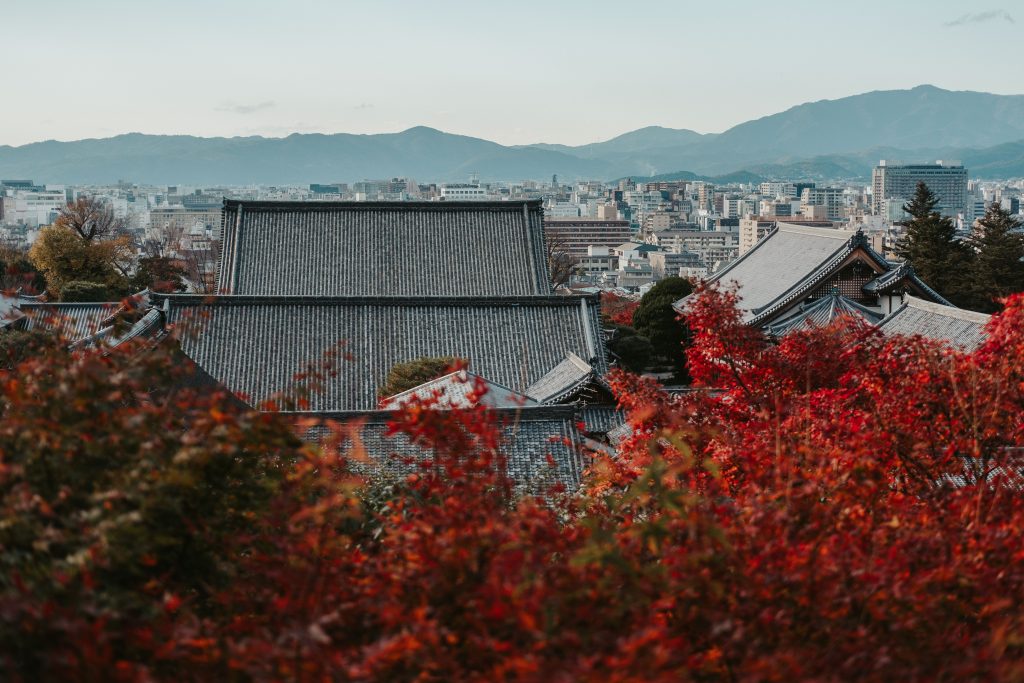
Japan has four Seasons
Japan has four seasons, and people celebrate and live in harmony with them. They even cook accordingly by using seasonal produce. People also dress for the season, so if you are planning a February trip to Japan, make sure to bring warm clothes, whereas Spring in Japan is mild and pleasant. You can prepare for the cherry blossom festival or learn what is the best time to visit Japan.
Final Thoughts
That’s it! You now know what to expect from your visit to Japan. There is plenty more about the Japanese way of life, and no better way to learn about it but to experience it for yourself. That’s why we really recommend visiting Japan because you are going to love every moment of your trip.
What did you learn whilst visiting Japan? Tell me all about it in the comments section below.
Frequently Asked Questions
Are Japanese people friendly to American tourists?
Yes, in general, Japanese people are friendly and welcoming towards American tourists. Japan is known for its hospitality and polite culture. Many Japanese people are accustomed to interacting with tourists from all around the world, including Americans, and they often make efforts to ensure that visitors feel comfortable and have a positive experience.
Japanese people are known for their politeness and helpfulness, and they are generally willing to assist tourists who may need guidance or information. While language barriers can sometimes be a challenge, especially in more remote areas where English proficiency may be limited, locals often try their best to communicate and assist tourists using gestures, maps, or translation apps. It’s good to know, that more Japanese people speak English than ever before, and the numbers are growing.
It’s important to note that cultural norms and customs in Japan may differ from those in the United States. It’s always a good idea to familiarize yourself with basic Japanese etiquette and customs, such as removing shoes indoors, and being mindful of personal space. Showing respect for the local culture can go a long way in building positive interactions and relationships with the Japanese people.
Is Tokyo friendly to American tourists?
Yes, Tokyo is generally considered to be a friendly city for American tourists. Japan, including Tokyo, has a reputation for being a welcoming and hospitable destination for visitors from around the world. While there may be some cultural differences and language barriers, the locals in Tokyo are known for their politeness and willingness to assist tourists.
English signage and announcements are common in popular tourist areas, and many locals, particularly those working in the tourism industry, have basic English language skills. Additionally, Tokyo is a major international city and a popular tourist destination, so there is a level of familiarity and accommodation for visitors from various countries, including the United States.
It’s always helpful to learn a few basic Japanese phrases and customs before visiting to show respect for the local culture, but even if you don’t speak the language, many locals will try their best to assist you.
Can you get by in Japan with English?
Yes, it is possible to get by in Japan with English, especially in major cities and tourist destinations. While English is not as widely spoken in Japan compared to some other countries, many people, particularly those working in the tourism industry or younger generations, have at least a basic understanding of English.
Here are some ways you can navigate Japan with English only:
Tourist areas: In popular tourist areas such as Tokyo, Kyoto, and Osaka, you’ll find signs, menus, and information in English. Many tourist attractions have English-speaking staff or provide audio guides in English.
Transportation: Major train stations and airports often have signs and announcements in English. In big cities, you can usually find English-speaking staff at ticket counters and information desks. Basic phrases and key names written in Japanese can be helpful for navigating public transportation.
Accommodation: Hotels, hostels, and guesthouses catering to international visitors typically have English-speaking staff. Online booking platforms normally provide information in English, making it easier to reserve accommodations in advance.
Restaurants: Many restaurants in tourist areas have English menus or picture menus. In other places, you might find establishments with plastic food displays in the window, making it easier to point at what you want. Learning a few basic food-related phrases or carrying a translation app can be helpful.
Technology: Utilize translation apps or language learning apps on your smartphone to communicate or understand basic phrases in Japanese. These can be handy for translating signs or having simple conversations.
While English proficiency is generally lower among the older population and in rural areas, Japanese people are often polite and willing to help even if they don’t speak English. It’s a good idea to learn a few basic Japanese phrases, such as greetings, thank you, and excuse me, as it shows respect and can facilitate interactions.
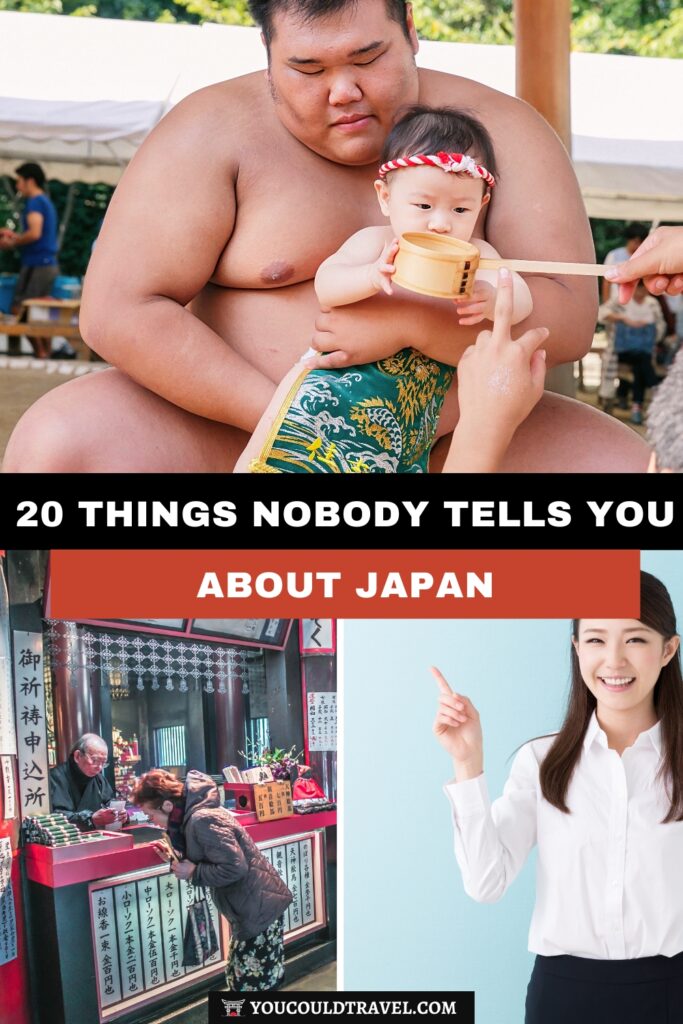
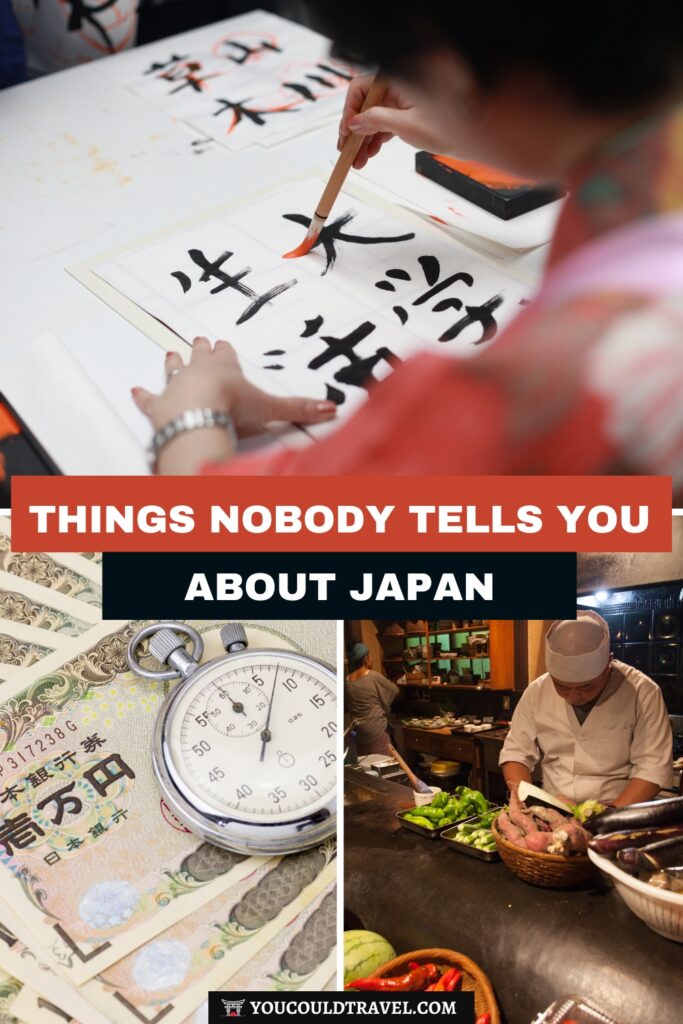

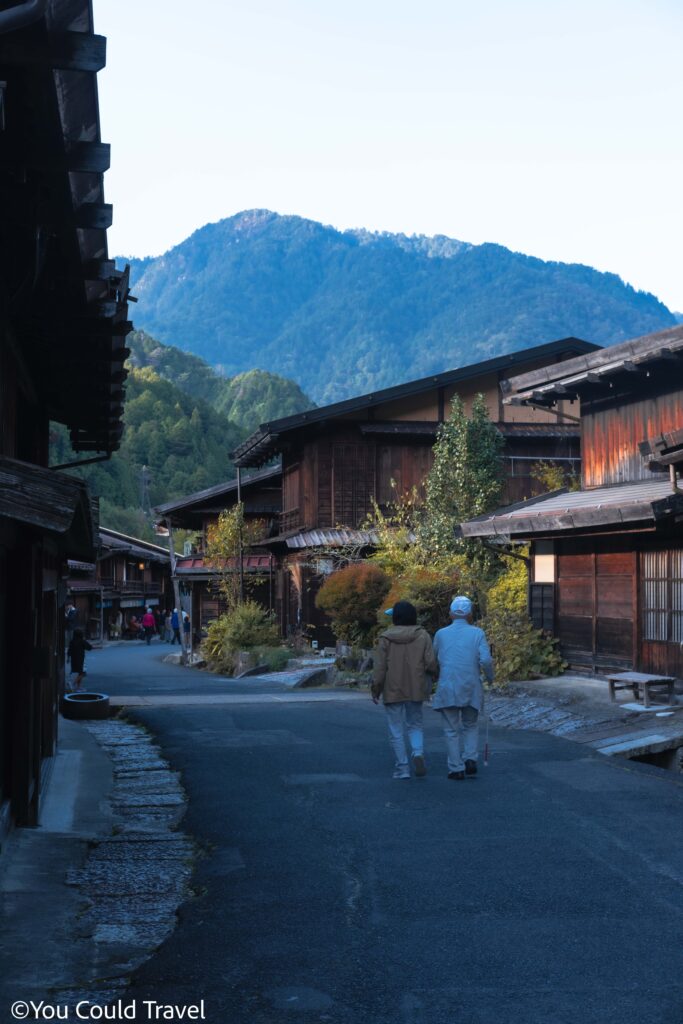
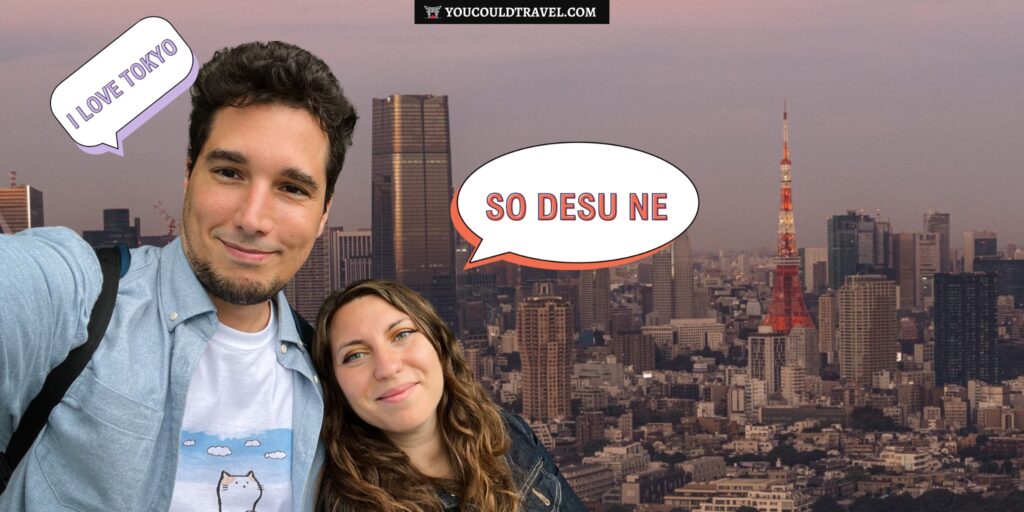
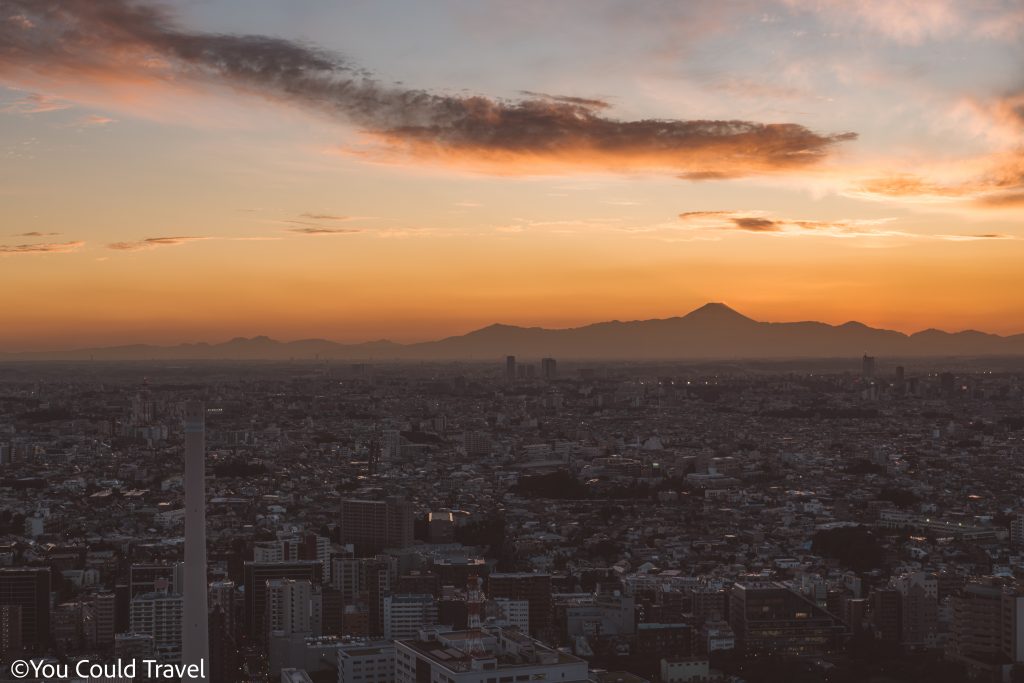
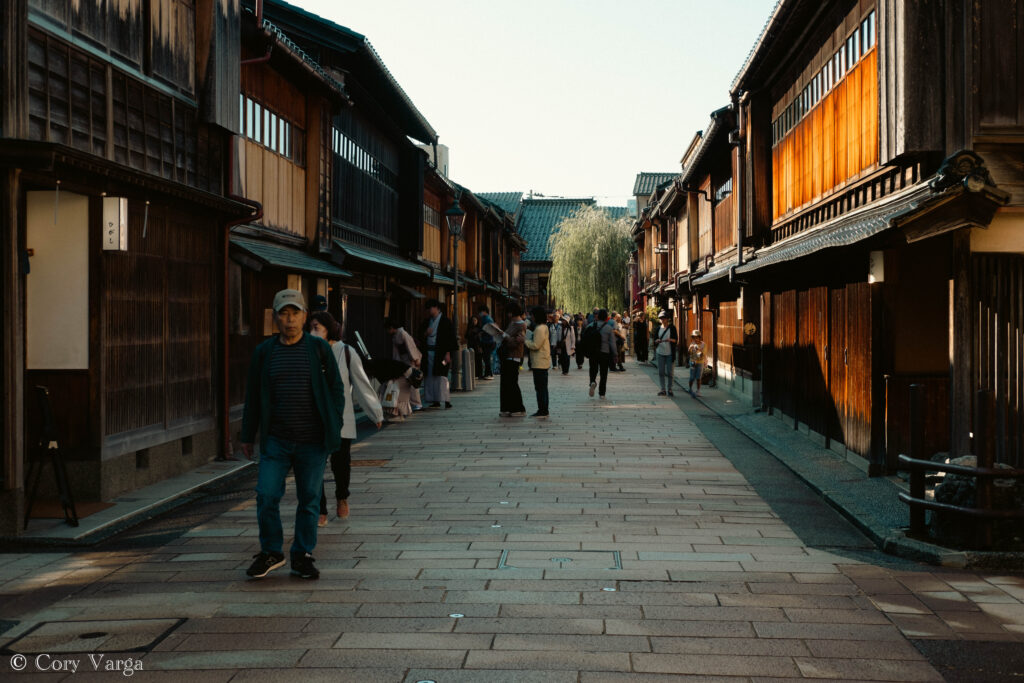
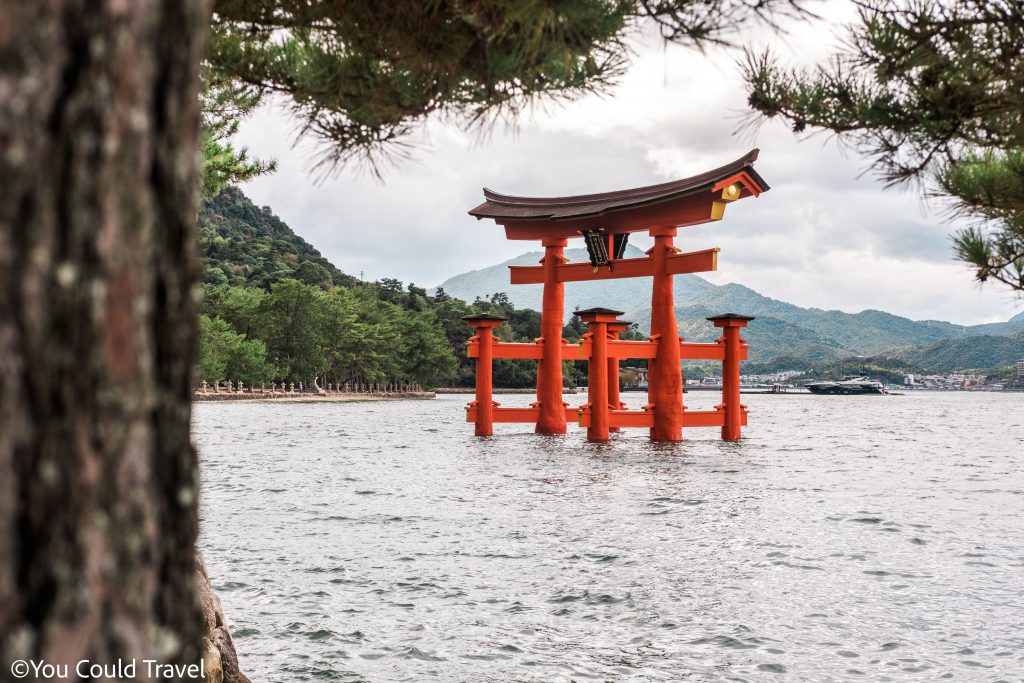
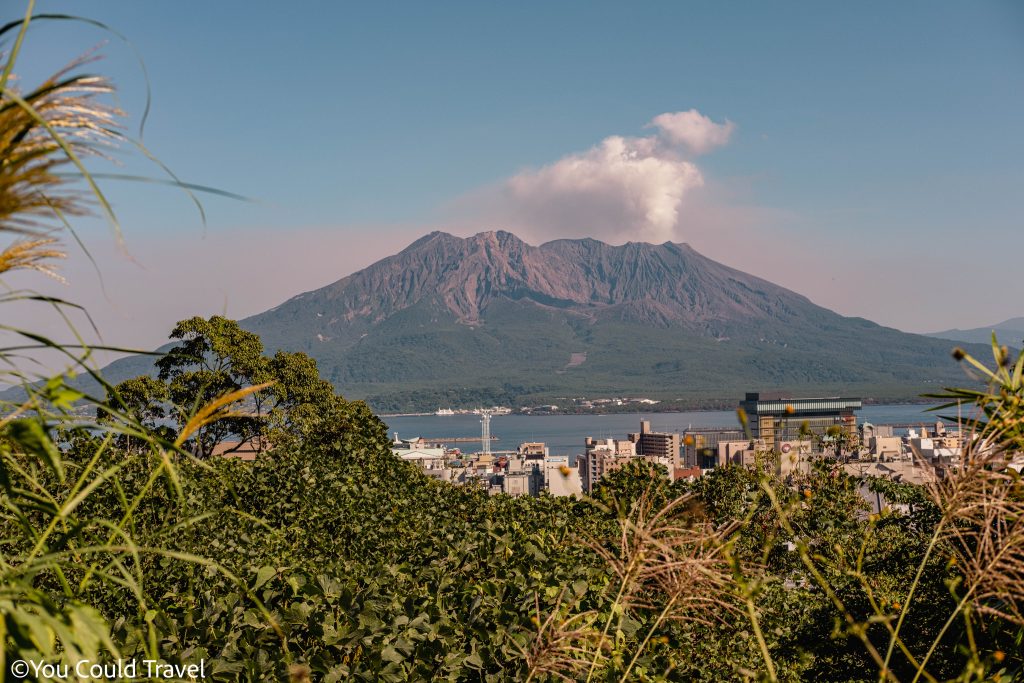
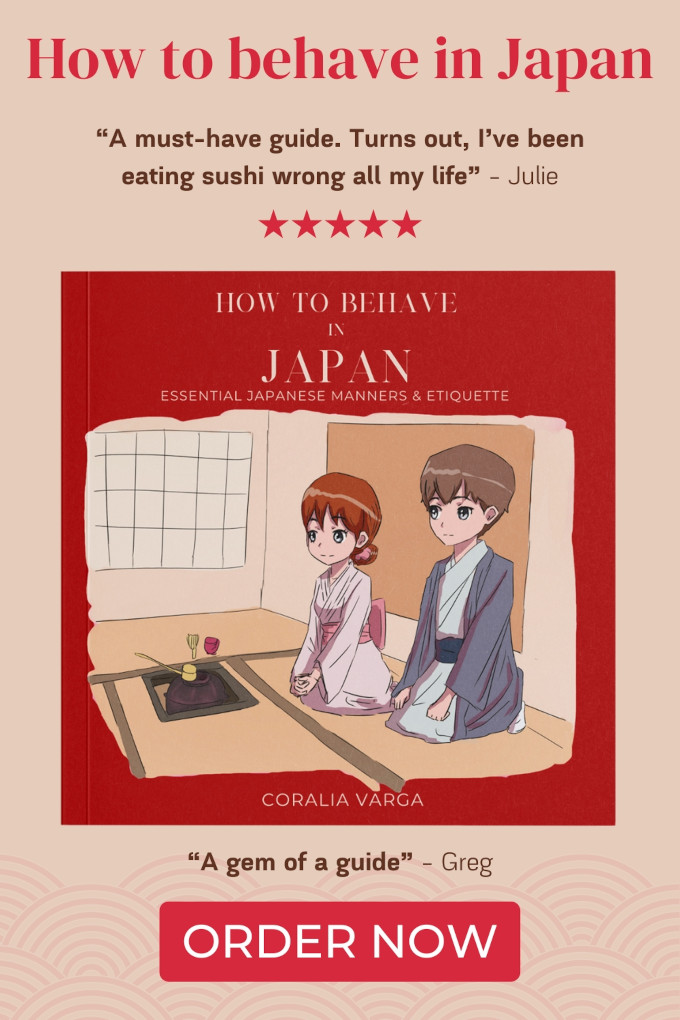

Leave a Reply